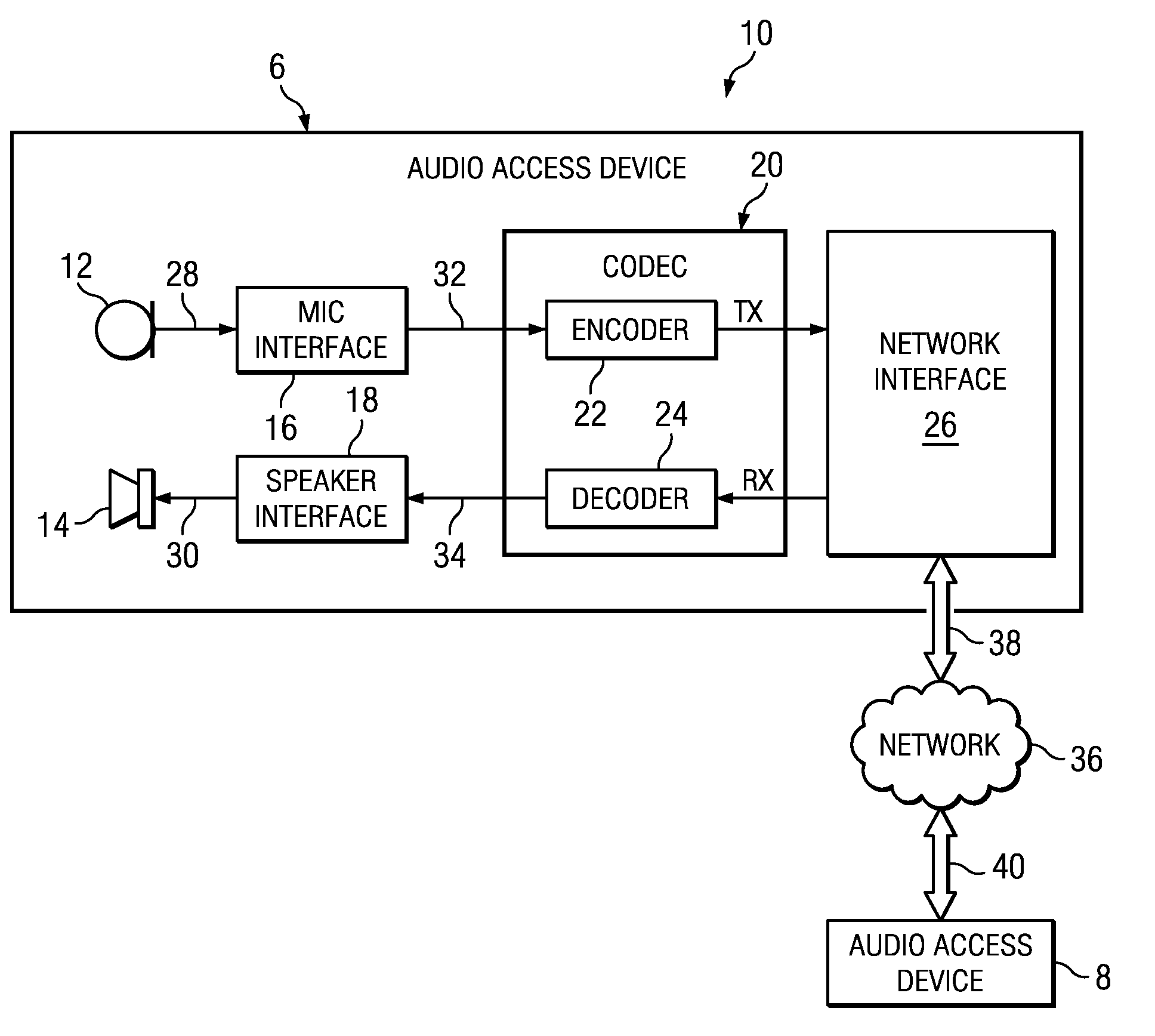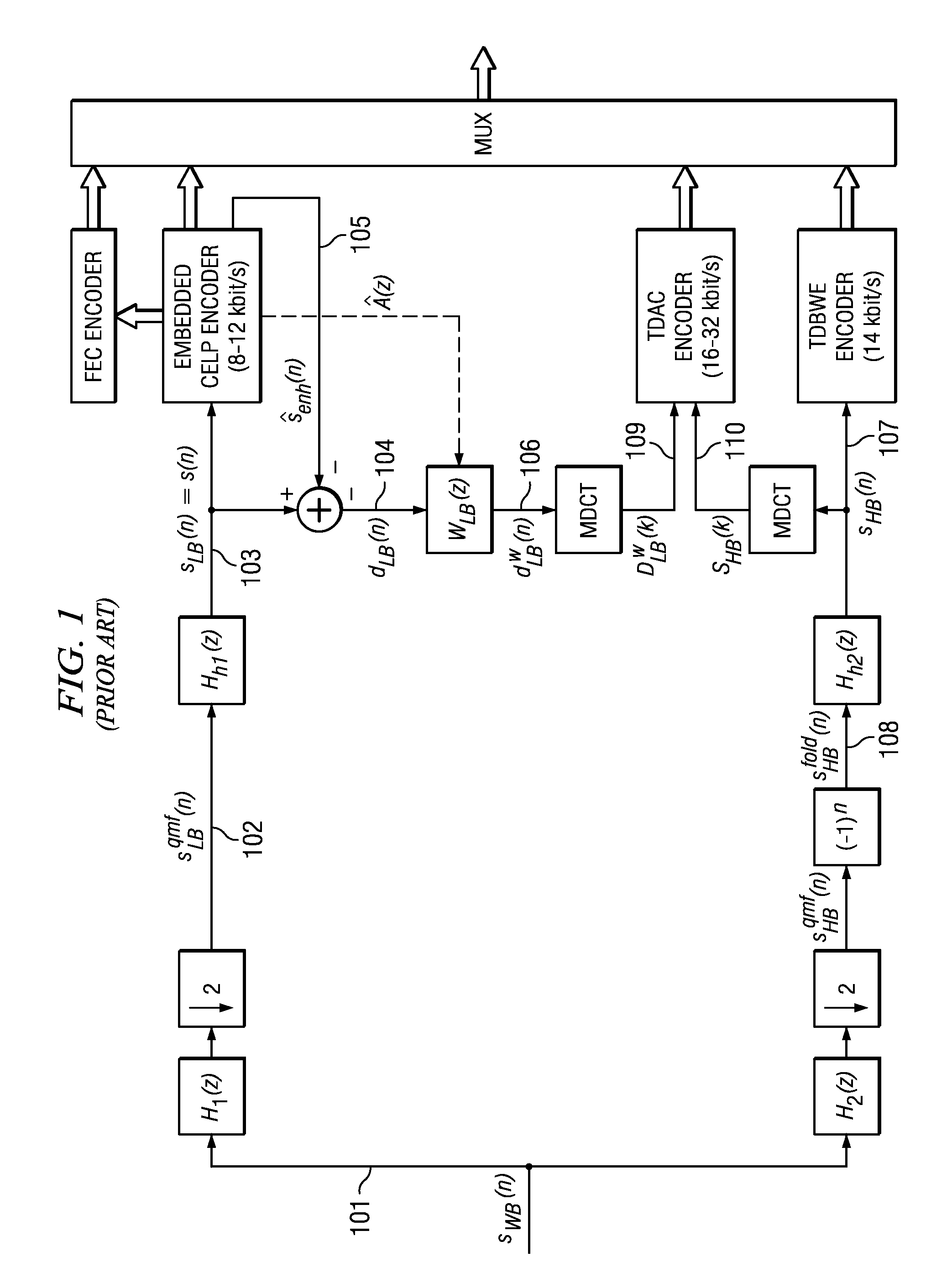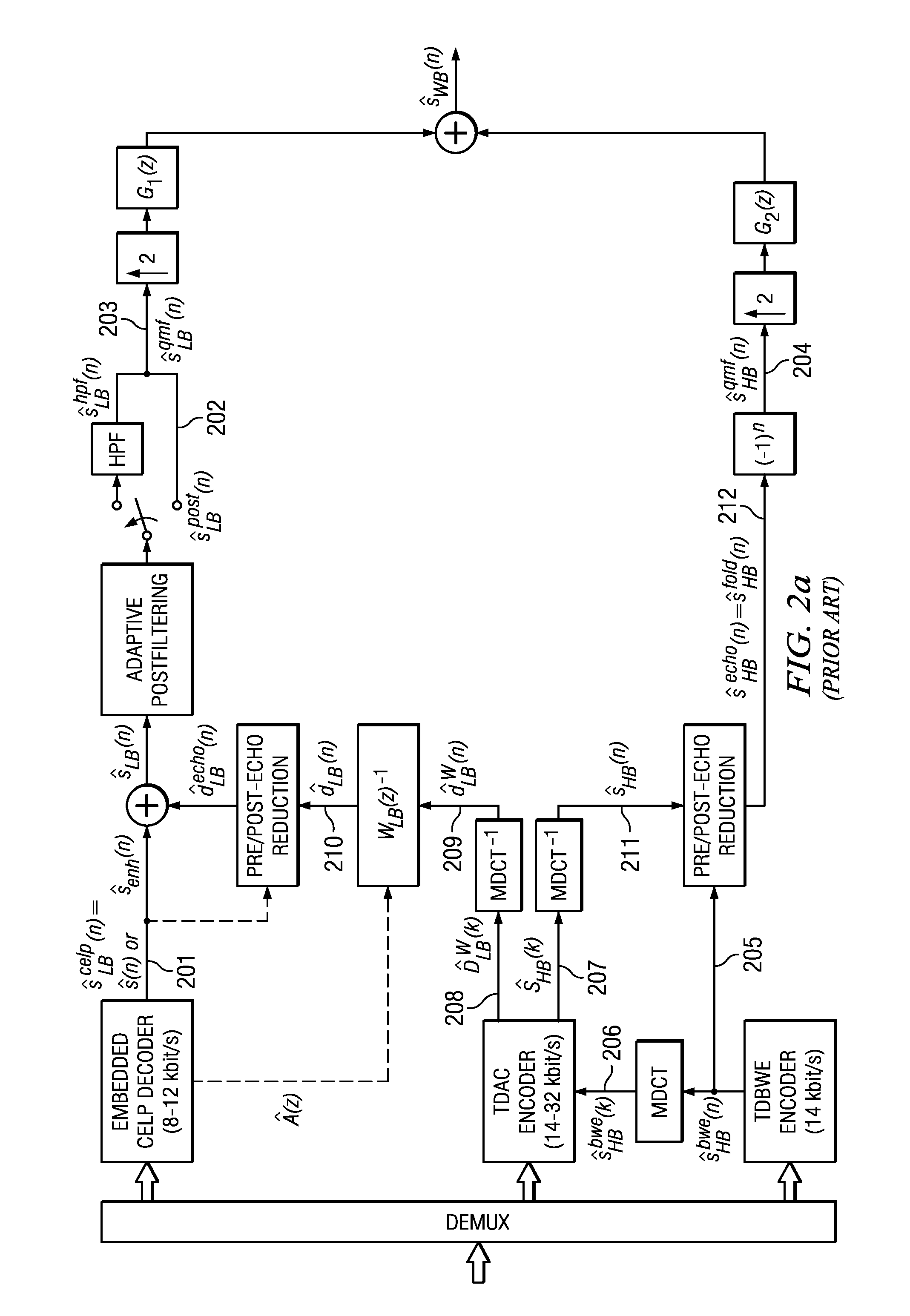CELP post-processing for music signals
a post-processing and music signal technology, applied in the field of speech/audio coding, can solve the problems of limited post-processing, high-pass filtering, adaptive post-filtering, etc., and achieve the effect of improving the perceptual quality of the output of the algorithm
- Summary
- Abstract
- Description
- Claims
- Application Information
AI Technical Summary
Benefits of technology
Problems solved by technology
Method used
Image
Examples
Embodiment Construction
[0089]The making and using of embodiments are discussed in detail below. It should be appreciated, however, that the present invention provides many applicable inventive concepts that may be embodied in a wide variety of specific contexts. The specific embodiments discussed are merely illustrative of specific ways to make and use the invention, and do not limit the scope of the invention.
[0090]The present invention will be described with respect to embodiments in a specific context, namely a system and method for performing audio coding for telecommunication systems. Embodiments of this invention may also be applied to systems and methods that utilize speech and audio transform coding.
[0091]The CELP algorithm is a very popular technology that has been used in various ITU-T, MPEG, 3GPP, and 3GPP2 standards. CELP is primarily used to encode speech signal by using specific human voice characteristics or a human vocal voice production model. Most CELP codecs work well for normal speech ...
PUM
 Login to View More
Login to View More Abstract
Description
Claims
Application Information
 Login to View More
Login to View More - R&D
- Intellectual Property
- Life Sciences
- Materials
- Tech Scout
- Unparalleled Data Quality
- Higher Quality Content
- 60% Fewer Hallucinations
Browse by: Latest US Patents, China's latest patents, Technical Efficacy Thesaurus, Application Domain, Technology Topic, Popular Technical Reports.
© 2025 PatSnap. All rights reserved.Legal|Privacy policy|Modern Slavery Act Transparency Statement|Sitemap|About US| Contact US: help@patsnap.com



